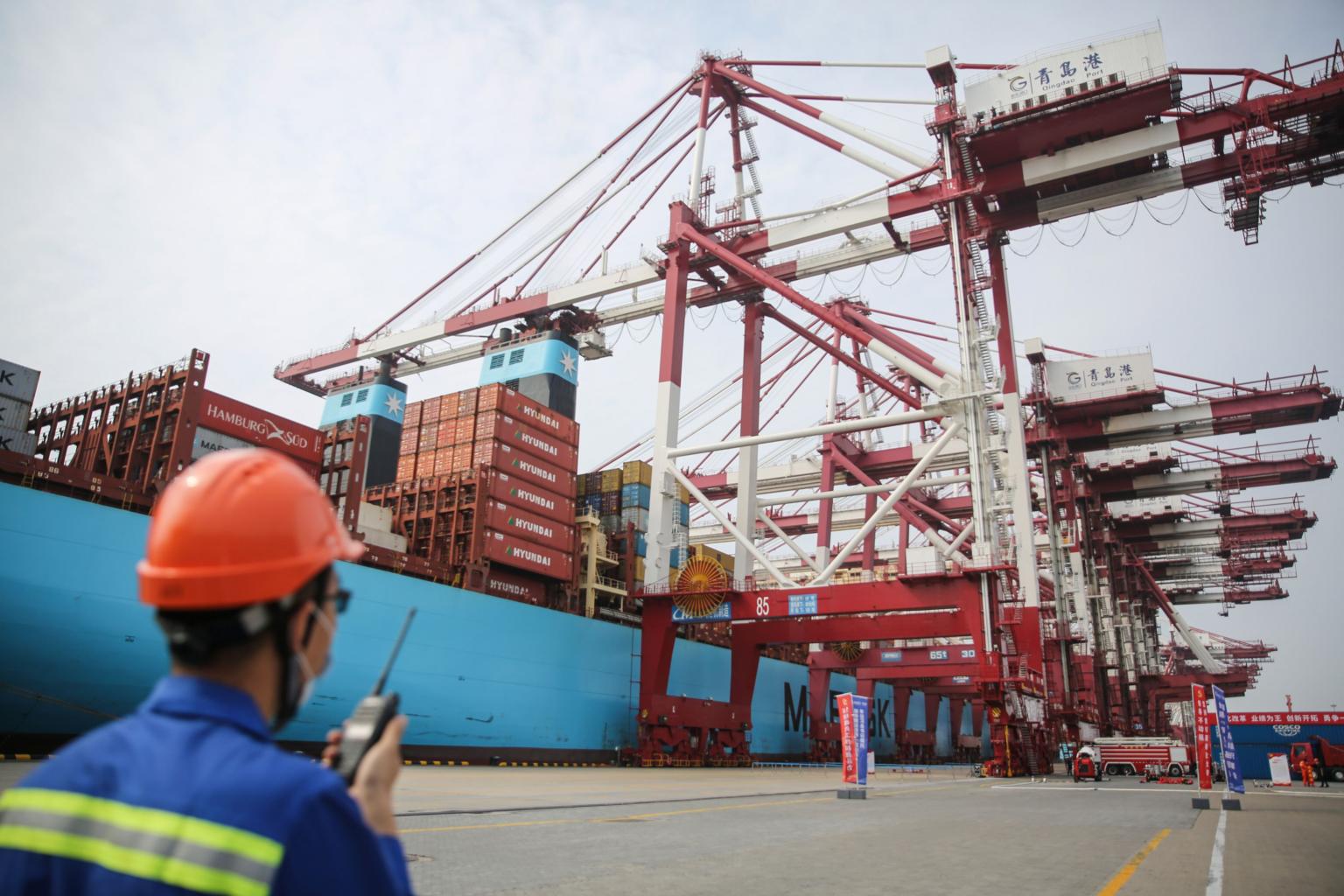Singapore, Shandong to deepen partnerships in trade, sustainability and services
Sign up now: Get ST's newsletters delivered to your inbox

Shandong is now Singapore's fifth largest Chinese provincial destination for investment.
PHOTO: AFP
Follow topic:
SINGAPORE - Singapore and Shandong can deepen its cooperation in areas such as trade and connectivity, sustainability and in modern services, said Senior Minister of State of Foreign Affairs and Transport Chee Hong Tat on Friday (Nov 13).
Mr Chee, who also co-chairs the Singapore-Shandong Business Council, told virtual participants at the 22nd business council meeting: "Singapore and Shandong can work hand-in-hand to deepen, strengthen, and accelerate our cooperation, so that we can overcome the challenges during this pandemic, and emerge stronger together after the crisis."
He noted that despite the pandemic, two-way trade between Singapore and Shandong grew significantly this year, reaching a total of US$3.6 billion (S$4.86 billion) in the first nine months of the year, marking year-on-year growth of 117 per cent.
The figures include trading activities by Singapore companies which have imported food and medical supplies like surgical masks from Shandong.
Shandong is now Singapore's fifth largest Chinese provincial destination for investment, after Jiangsu, Guangdong, Shanghai and Chongqing.
Last year, Singapore's foreign direct investment into Shandong reached US$750 million, across 70 projects.
Mr Chee said: "There is opportunity for Chinese exporters to broaden the range of exported produce from Shandong to Singapore, including premium fruits and vegetables such as cherries and black garlic. Beyond meeting our domestic demand, we are also happy to work with the Shandong government to increase food trade with South-east Asia and other regions, using Singapore as a trading hub."
He noted that progress has been made by the business council in helping Singapore companies participate in Shandong's economic transformation, promoting the internationalisation of Shandong enterprises through Singapore and strengthening people-to-people exchanges.
Cooperation can also be strengthened in sustainability, he added, as both countries work to develop solutions for a cleaner and greener environment.
For example, China's Haier Group participated in the Singapore Week of Innovation and Technology last year, and sponsored innovation topics, he noted.
They are now collaborating with a few Singapore companies and are in the proof-of-concept stage of co-developing cutting-edge technologies, which if successful will significantly increase energy efficiency, durability and environmental friendliness through new materials and digitalisation.
Companies from both countries can also accelerate partnerships in modern services, whereby Singapore's financial services companies and law firms, with their extensive networks and experience in South-east Asia, can be good partners to Shandong companies looking to internationalise, Mr Chee said.
To increase collaboration between both countries, five partnerships were signed between Singapore and Shandong organisations, and witnessed by Mr Chee and Shandong Vice Governor Ren Airong.
They include tie-ups between two technology firms to set up businesses in China and Asean markets, an education group here and Qingdao Blue Silicon Valley Adminstration Committee to develop vocational education talent in Qingdao, and a Singapore water treatment company and Yicheng District Government for the construction of the township and industrial park sewage network.
Mr Chee said: "It may be challenging for companies to enter new markets now due to the Covid-19 pandemic. We will overcome Covid-19, it is a question of when. Companies should use this period to prepare themselves by understanding the market opportunities and finding potential partners, so that they are ready to move swiftly when the global economy recovers."

